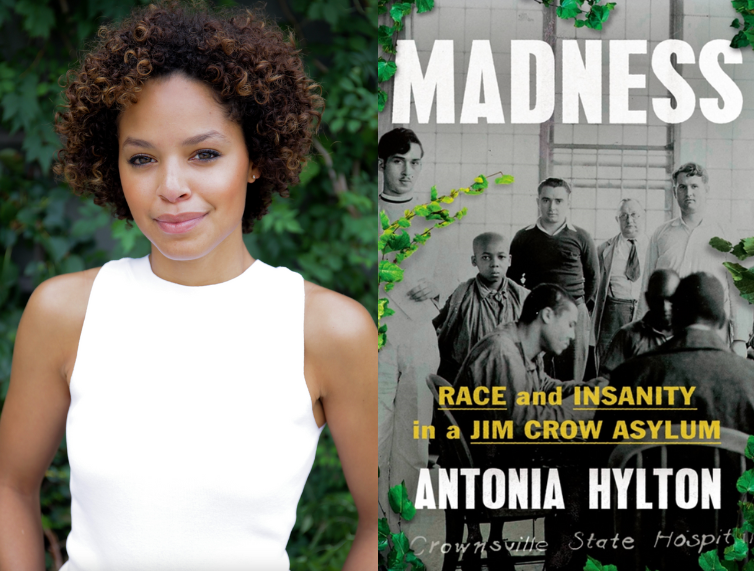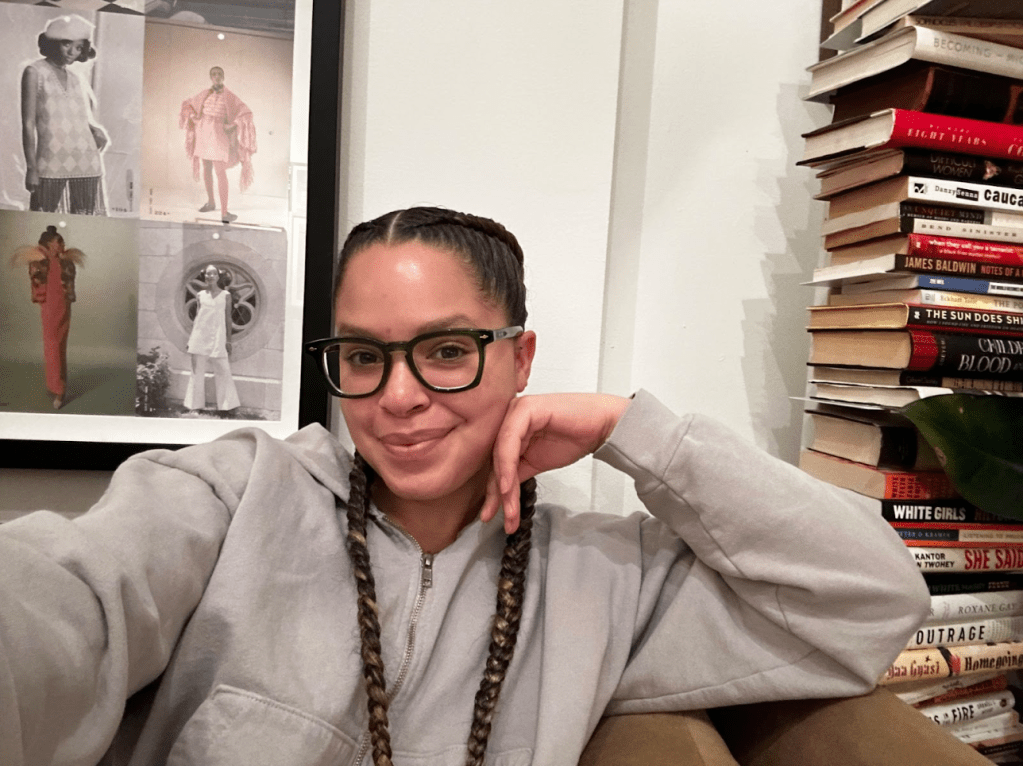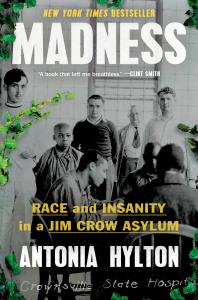Open Book Interview: Antonia Hylton


Antonia Hylton (she/her) is a Peabody and Emmy-award winning journalist at NBC News reporting on politics and civil rights, and the co-host of the hit podcast Southlake and Grapevine. She graduated magna cum laude from Harvard University, where she received prizes for her investigative research on race, mass incarceration and the history of psychiatry. She lives in Brooklyn.
Amazon Editor’s Pick for Best Books of January.
In the tradition of The Immortal Life of Henrietta Lacks, a page-turning 93-year history of Crownsville Hospital, one of the nation’s last segregated asylums, that New York Times bestselling author Clint Smith describes as “a book that left me breathless.”

I wrote most of MADNESS in this specific corner of my couch, right next to a messy tower of books. Comfy clothes were a must.


I’m the middle child in a group of seven children. I learned early that I would need to find my voice and my own space in the world by writing and thinking out loud.
Throughout the book, I open up about my own family’s history of mental trauma in America. Writing and reporting out this story, as painful as it could be at times, brought me closer to many of my aunts, uncles, and elders. It helped us overcome the shame and fear that holds back so many families with histories of mental suffering.
Two of my younger sisters – Consuelo and Margaret – provided edits, feedback, and research assistance the whole way through. So much of my family and my heart is in MADNESS.

I find myself listening to Remember by Seinabo Sey and Jacob Banks over and over again lately. It’s a song about searching for meaning, constructing a legacy, and honoring the memories of people we love. I consider it the official theme song for the final chapter of MADNESS. That chapter explores the closure of a segregated asylum, and follows a number of elders in a community in Maryland as they try to resurrect the memories, stories, and names of patients who were buried on the grounds. Years ago, the government buried those patients as numbers – not names. In the spring of 2024, following their efforts and the publication of MADNESS, the local government will unveil a memorial restoring all of those patients’ names.


I would love to write a collection of short stories someday. To beat writer’s block while writing MADNESS, I would re-read some of my favorite stories by authors like Edwidge Danticat. As a journalist, I think it would be exhilarating to work on something fictional and unrestrained for once.

I’m a Libra sun, Libra rising, and Aquarius moon. A triple air sign. It’s definitely accurate. I’m talkative, obsessed with justice, and constantly striving for balance in each area of my life. I love color, textiles, music. I spend a lot of my alone time daydreaming.
In Madness, Peabody and Emmy award-winning journalist Antonia Hylton tells the 93-year-old history of Crownsville Hospital, one of the last segregated asylums with surviving records and a campus that still stands to this day in Anne Arundel County, Maryland. She blends the intimate tales of patients and employees whose lives were shaped by Crownsville with a decade-worth of investigative research and archival documents. Madness chronicles the stories of Black families whose mental health suffered as they tried, and sometimes failed, to find safety and dignity. Hylton also grapples with her own family’s experiences with mental illness, and the secrecy and shame that it reproduced for generations.
As Crownsville Hospital grew from an antebellum-style work camp to a tiny city sitting on 1,500 acres, the institution became a microcosm of America’s evolving battles over slavery, racial integration, and civil rights. During its peak years, the hospital’s wards were overflowing with almost 2,700 patients. By the end of the 20th-century, the asylum faded from view as prisons and jails became America’s new focus.
In Madness, Hylton traces the legacy of slavery to the treatment of Black people’s bodies and minds in our current mental healthcare system. It is a captivating and heartbreaking meditation on how America decides who is sick or criminal, and who is worthy of our care or irredeemable.
